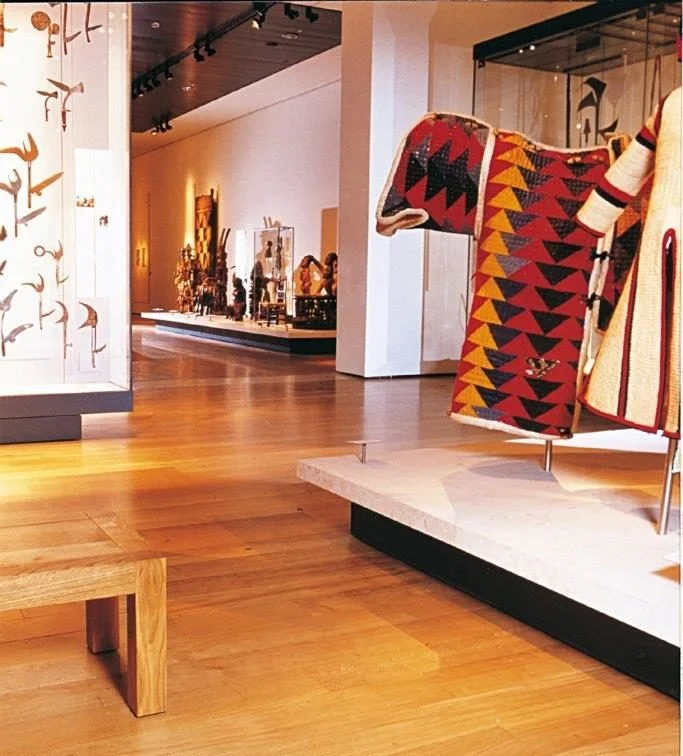Why Architects Should Use Timber Over Other Construction Materials
Timber is one of the oldest low-tech building materials in the world, yet still it remains an essential material to construction and architecture projects to this day.
Renewable, environmentally-friendly, low-carbon and always reliable, you'd be hard-pressed to find a material better suited to building modern, healthy buildings. Of course, as a timber merchant, we have to do our bit to make sure the availability of timber does not turn into boundless exploitation but when done right, the supply and manufacture of timber remain crucial to the kind of construction and architectural projects to which we supply.
As fully-certified timber suppliers, we've had the pleasure of working with the Royal Institute of British Architects; and sourcing timber for architectural projects remains a pillar of the W.L West’s business profile.
Construction Timber Properties
Part of timber's popularity is down to its sustainable and low-carbon nature; considered the lungs of the planet, trees absorb carbon as they grow and store it as wood, making timber products a carbon store rather than a carbon emitter. Over the course of its lifetime, each ton of tree can absorb 1.48 tons of carbon from the atmosphere. They are key in the fight to minimise global warming.
High in cellulose content, wood has unique thermal insulation properties. A 2.5cm timber board, for instance, has better resistance to heat loss than an 11.4cm brick wall.
On top of this, thanks to its strength-to-weight ratio and ease of use, it takes comparatively little energy to shape, cut and join. Therefore, it is possible to manufacture high-quality, high-performance yet low-carbon buildings, using a fraction of the energy inputs required for other materials.
Of course, different woods have different properties. The ox-like Oak will withstand huge amounts of weight and pressure, while the small miracles of beech tend to be hidden from sight. Yet, both are essential in woodworking areas as diverse a timber frame construction, restoration, joinery and landscaping.
As a result, timber has become one of the leading materials for the “offsite construction” boom, attracting investment across the UK.
A similar spike to have made history was the surge of interest in DIY and home improvement during the 2020 lockdown, making timber the UK's hottest commodity for a few months. The effects of the supply shortage are still felt now.
Timber in Heritage & Restoration
In restoration and conservation work, and heritage projects especially, timber is often the main material in demand, from beams to cladding and machined timber.
Take our work on the HMS Warrior and HMS Victory, for example: both projects require regular restoration and maintenance that will go on indefinitely. The ships receive an endless supply of beams, moulding and mock-ups, from the rough carpentry work to fine detailing at the end. Both ships now stand proud in Portsmouth Harbour, resplendent, and further projects are in the making.
We've worked on many historic buildings, including Kensington Palace and Westminster Abbey, but particularly relevant to the historical use of timber in architecture was our recent work on Tilford Bridge, a huge and fascinating project.
Listed as Grade 1 and dating back from the 13th Century, Tilford Bridge crosses a ford that is thought to have been built by monks from Waverley Abbey around 1128 AD.
Tilford Bridge is thought to be one of the last surviving packhorse bridges in the UK. These types of bridges usually featured narrower masonry arches - to lend strength - and low parapets to allow for the bulk of packhorses' loads.
Carcassing timber and scaffolding were essential to the building of any edifice throughout history. Even this project involved the supply of dozens of beams and timber buttresses to re-build and strengthen the parapet structure, following its partial destruction after a road accident in 2017.
Getting Creative
The great thing with timber is its versatility. Knowing the profile and species of each type of timber allows for thorough understanding and thinking outside of the box.
For example, take our projects on two national museums: the Natural History Museum in London and the British Museum. Who would have thought to match indoor cladding with a warm, sleek European Character Oak floor?
Cladding (typically an external weather-proof feature, although internal cladding has its aesthetic charms as well) seems a popular outlet for creativity among visually striking projects in general: see our finished work at Churchill College in Cambridge and Blue Lion Place in Southwark.
Clearly, however, different types of timber and wood species will lend themselves differently to the task. The way timber is painted, treated and stained will also impact its effect on each project, which is why it's essential for architects and designers to understand the needs and purposes of a building design before commissioning timber supplies.
If you're still in the research and planning phase, we always recommend seeking specialist advice and personal recommendations.
Garden Landscaping & Design
On a residential level, most homeowners or estate proprietors are just as likely to consult landscape architects in the UK as architectural designers.
The latest CNC machine (featured in our list of 5 Best Woodworking Machines) can produce intricate works of any kind and comes in particularly useful for curves.
Previously, certain angles and curves had to be replicated from blueprints in an analogue or hand-guided manner, which could be charmingly rustic if desired, but nowadays it is laser-cut precision that brings a whole plethora of possibilities to timber products in general.
These possibilities include fine woodworking on typically plain landscaping products, such as engravings, decorations and unique overall design.
For specialist advice, please don’t hesitate to get in touch.
WL West Timber is a family-owned sawmill & timber merchant in West Sussex with over 155 years’ industry experience. We provide a wide range of air-dried oak and kiln-dried oak timber products and supplies. We also build and install custom projects for our customers.
For more news, tips and updates, follow us on Facebook, Twitter, or Instagram.
For entirely finished products, timber supplies or woodworking tools, have a look at our online shop.






